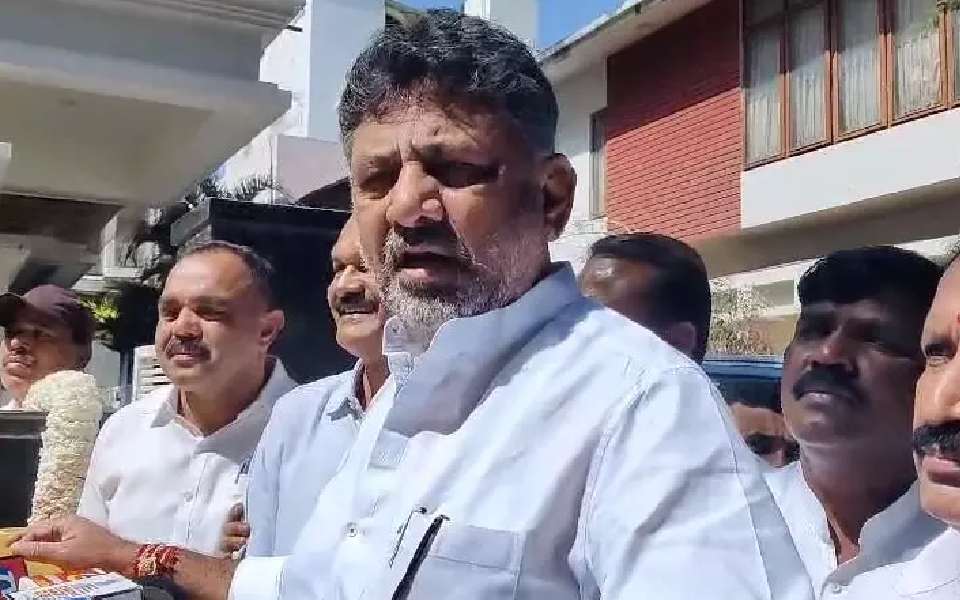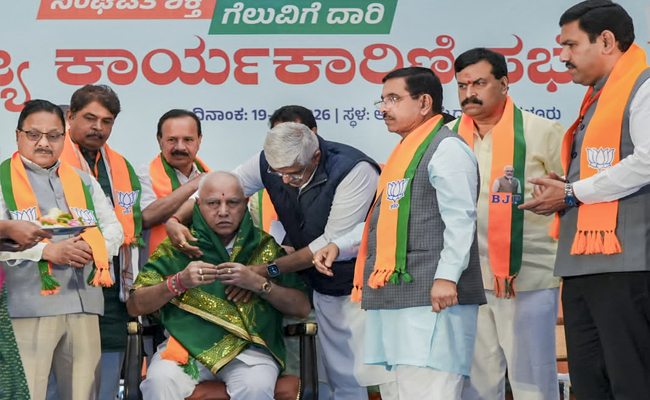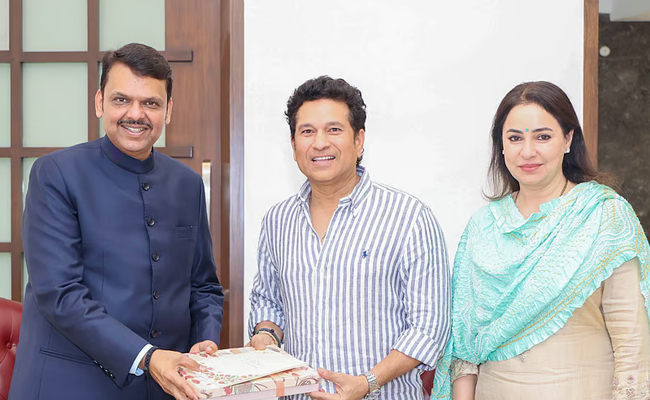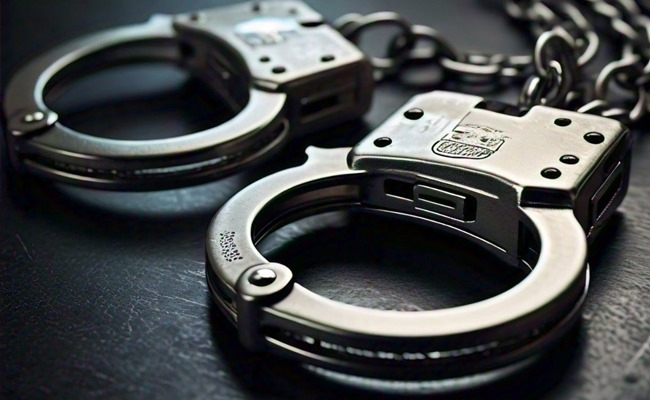Belagavi (Karnataka), Jan 20 (PTI): Karnataka Deputy Chief Minister D K Shivakumar on Monday said that he has no differences with anyone in the party and appealed to the media not to drag him into any controversy.
Shivakumar, who is also Congress state president, said his sole responsibility is to "save" the party and government.
"My only responsibility is to save the party and keep the government stable. I don't have any responsibilities other than this. I don't have differences with anyone. Please don't drag my name unnecessarily into everything," he said, while speaking to reporters here.
The statement comes in the midst of a demand by a section of ministers and MLAs who wanted a full-time Karnataka Pradesh Congress Committee president.
Karnataka Public Works Minister Satish Jarkiholi recently raised this demand, saying that ministers cannot do justice to the important post of building the party.
Shivakumar said he has been diligently doing his duty of protecting the interests of the party and the party workers.
"It is between the party, the high command and me. Don't whip up fake controversies within the party by reporting that there is dissidence in the party," Shivakumar told reporters here.
Asked if there was no internal rift in the Congress party, he said, "There is no rift in the party. I don't have differences with anyone in the party personally. I am the president of the Congress Karnataka unit and I treat everyone in the party equally. It is my duty to take everyone along."
To a question about some ministers writing to Congress leader Rahul Gandhi demanding the replacement of AICC general secretary in-charge of Karnataka, Randeep Singh Surjewala, Shivakumar termed it as speculation and refused to react to it.
Let the Truth be known. If you read VB and like VB, please be a VB Supporter and Help us deliver the Truth to one and all.
Bengaluru (PTI): BJP leaders on Thursday launched a sharp attack on the Congress government in Karnataka and exuded confidence that the party would return to power in the 2028 Assembly elections.
The opposition party in Karnataka also passed four resolutions at its state executive committee meeting at the Palace Grounds here. It includes rampant corruption in the state, misuse of government funds, growing drug menace, agrarian problem and the garbage crisis in Bengaluru.
The party also hailed the Centre for introducing Viksit Bharat – Guarantee for Rozgar and Ajivika Mission (Gramin) (VB-G RAM G) replacing the Mahatma Gandhi National Rural Employment Guarantee Act (MGNREGA).
The executive committee welcomed the Centre's decision to give respect to 'Vande Mataram' song.
Addressing the meeting, BJP state president B Y Vijayendra alleged there was "zero development" in the state and claimed discontent within the ruling party.
"Let us work day and night to restore the BJP’s past glory in Karnataka," Vijayendra said, adding, "A situation has arisen where even MLAs of the ruling party may revolt against the government."
He alleged that law and order had completely deteriorated under Chief Minister Siddaramaiah-led Congress government in the state and referred to murders in Surathkal and Yellapur, claiming no compensation had been provided to the families of a Dalit woman in Yellapur and a Dalit man in Koppal.
He further alleged that Mysuru had become a narcotics hub and recalled the rape and murder of a 10-year-old girl during Dasara in the Chief Minister’s home district.
Vijayendra urged party workers to gear up for a series of upcoming elections, including local body polls, GBA elections and Assembly bypolls, and called for grassroots mobilisation to highlight the failures of the Congress government.
Inaugurating the meeting, Union Minister Gajendra Singh Shekhawat said, "This is not merely an organisational meeting but a meeting for introspection."
He described it as a gathering to strengthen the organisation and resolve to remove the corrupt government from power.
Expressing confidence about the party’s prospects, he said the BJP would form the government in Karnataka in 2028 with an overwhelming majority.
He criticised the Congress for the Emergency and alleged that the state had become "corrupt and financially bankrupt", referring to scandals, including MUDA. He also claimed there had been infighting over the Chief Minister’s post from the beginning and that public debt had risen sharply.
BJP National General Secretary and Karnataka in-charge Radha Mohan Das Agarwal said the party's victory in the 2028 Assembly elections was certain and objected to alleged attempts to curb RSS activities in the state.
He accused the government of favouring minorities over Scheduled Castes and termed it a "corrupt government".
Former Chief Minister B S Yediyurappa, who was felicitated for completing 50 years in active politics, called upon party workers to resolve to bring the BJP back to power "on our own strength" and to "uproot the corrupt Congress government".
Former Chief Minister D V Sadananda Gowda said it was Yediyurappa who had brought the BJP to power in Karnataka for the first time in South India and praised his role in strengthening the party.
Several senior leaders, including Union Ministers Pralhad Joshi, Shobha Karandlaje and V Somanna, and other state leaders were present at the meeting.





